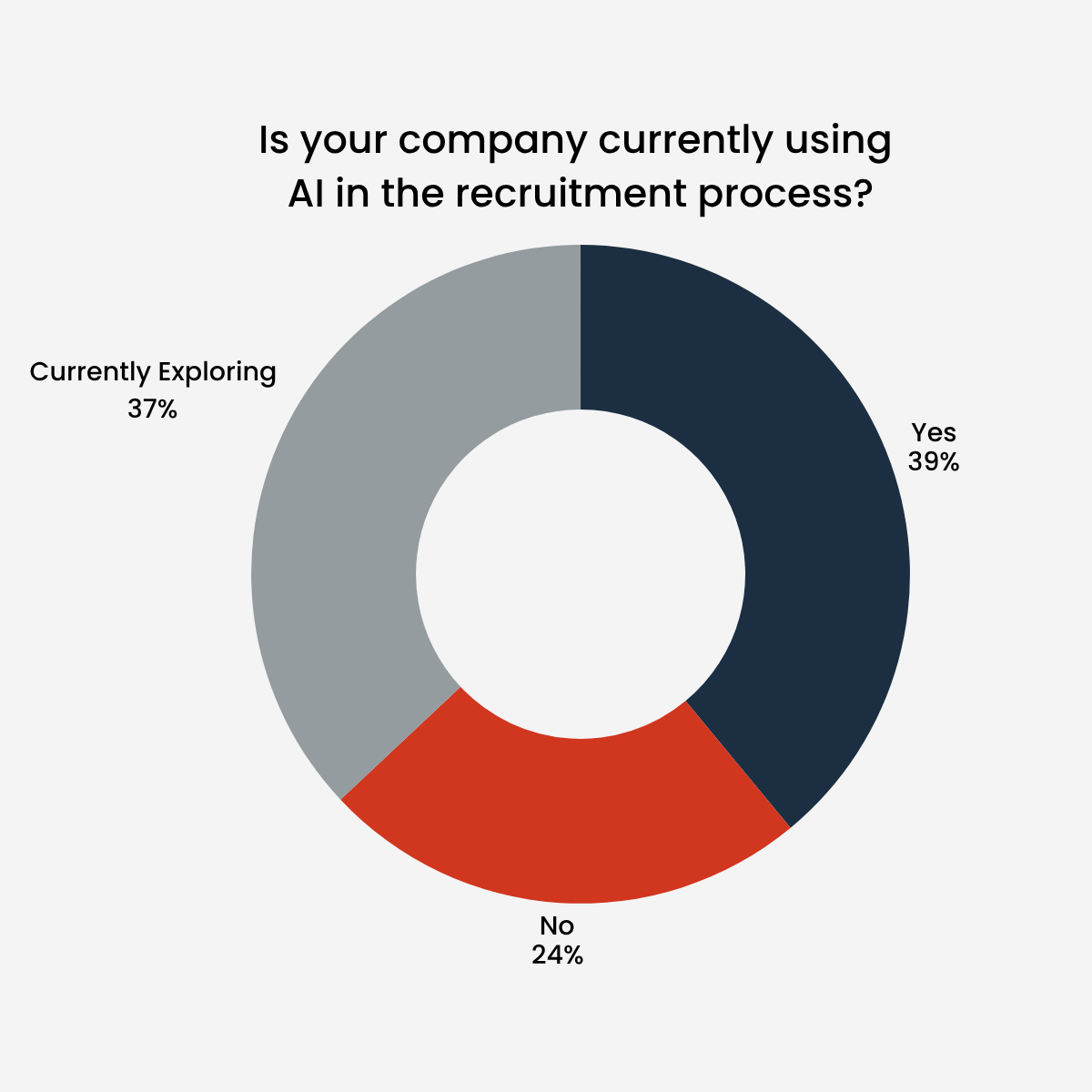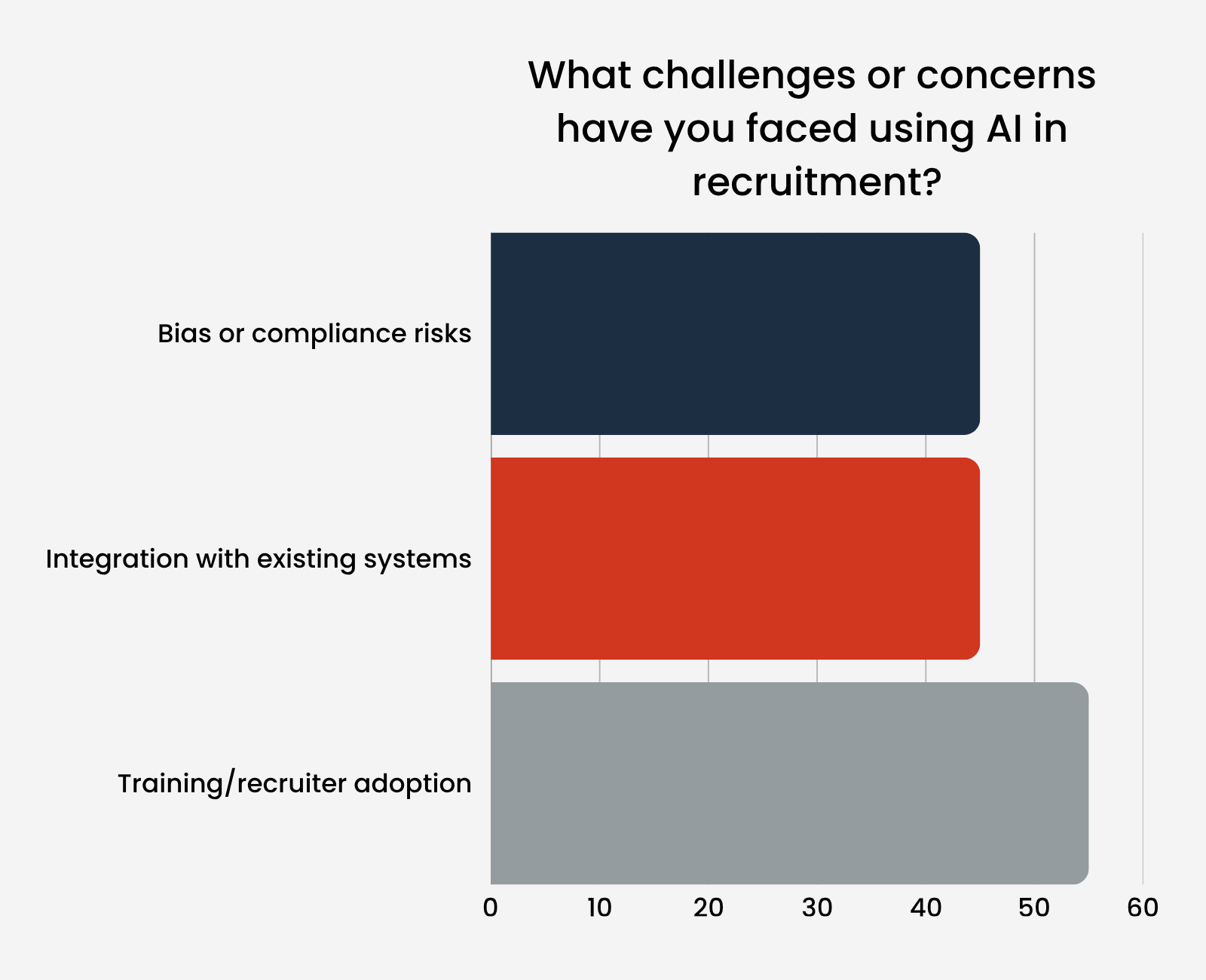In today’s technologically dependent world, you’re hard pressed to go a day without using some form of AI–even if you don’t realize it. And while workplaces strive to work more efficiently, you may find your teams consciously implementing AI into your daily processes. While many employers work toward implementation, others are left to wonder where to begin. How are other HR practitioners using it and what are some best practices or lessons-learned?
We were recently contacted by a DirectEmployers Member who was interested in gaining the answers to these questions and opted to do a survey of their peers (a perk of membership!). They drafted the questions, and we sent it out to our database to anonymously collect their responses over a two-week period. After the results were finalized and reviewed, a few interesting findings and key trends emerged.
Adoption

So what tools are practitioners using? Some of the most frequently cited were LinkedIn AI-powered features, Phenom, hireEZ, and Indeed.
Benefits
So, what benefits are DirectEmployers Members gaining from AI use in recruitment? Not surprisingly, ‘increased recruiter efficiency’ ranked highest at 70%, with ‘better candidate experience’ and ‘reduced bias in screening’ both at 30%. As with the adoption of most technology, improving processes and saving employees time on daily tasks are both desirable outcomes – and if you can enhance the experience for candidates and make decisions less biased, that’s a win-win!
Challenges

Pro Tip: Watch this recent webinar hosted by the attorneys at Roffman Horvitz as they discuss developing regulation of the use of AI tools in employment. In addition, register to attend “AI at Work: Navigating Risk in Employment Decisions in Colorado & Beyond,” hosted by Mickey Silberman and Michelle Duncan of Silberman Law, on October 30th at 2pm ET!
Looking Ahead
With 37% of respondents stating that they are currently exploring AI tools and planning to implement them in the future, it’s certain that the use of these technologies will continue to grow in the employment space. Other areas of recruitment reportedly being explored for integration in the next one to two years include, talent acquisition strategy planning, candidate evaluation, chatbots, and interview scheduling.
As technologies develop and more companies push to implement these potential money and time-saving tools, oversight by regulatory agencies is also sure to expand. We recommend working closely with your legal team when implementing AI into your processes and to keep up to date on the latest EEOC guidance and legislation in this rapidly growing area.
DirectEmployers Members can sign in to DE Connect to view the full overview of responses.
